#unix arch
Explore tagged Tumblr posts
Text
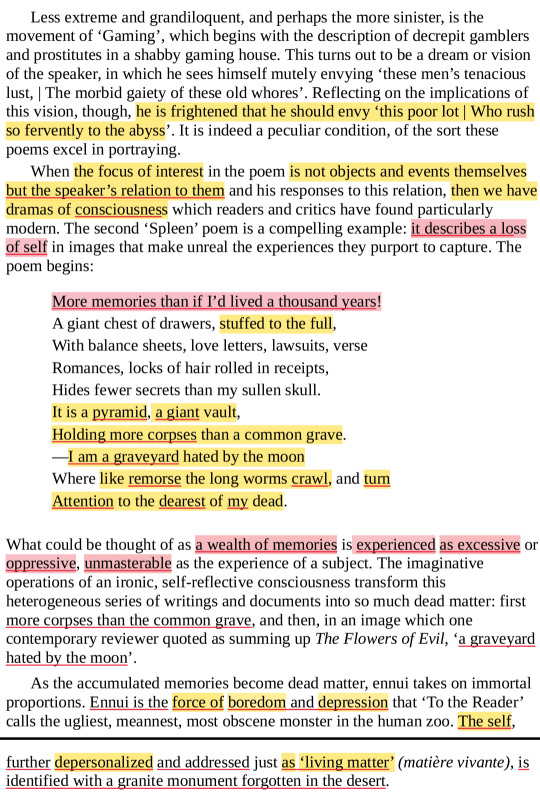

every once i while i mention how i feel at home & twistor theoretically hugged & completely safe/well understood when i'm with my mutuals. today i'm welcoming baudelaire to our little group.
i'm asking myself if the ppl i call mutuals even though they died long ago, were writing (and, ohh, they were, jeezus, they were. iykyk.) about such a pathological psycho-emotional sociopathic behavior in great detail, describing every algorithm, using the common notation, sculpting peculiarly a morphology which is obviously recognizable (well, to me.)(and..who?) (ノ゚⊿゚)ノ (ʃᵕДᵕʅ) (ノ∧← ι) - does it mean they knew of the generalizability / the significance already? because that implies they had archieved a wholesome and robust knowledge of their own wreckage. which is supercool and can turn out very well as in hermann hesse's case.. but as most of em left the building with the head-in-the-oven-bus or the blow-my-head-off-plane(departure at quantum gate) or my fav nightmare*: completed their life→death transistion but nobody noticed as they kept on walkin' earth like christmas turkeys without filling (iff those turkeys usually came as zombies) and the funeral took place several decades later when existence(level n/a) got rid of the turkey's leftovers via the neighbor's dog whatsoever - i conclude: 1. from my frame of reference the knowledge of largest order of magnitude isn't actually of largest order of magnitude (c'mon it's obvious, there's not a lot missing, it just has to add up! -said everyone trying to prove the collatz conjecture, too). 2. no pain no gain but the pain load is exhaused, therefore continue at *⁽ᶠᵃᵛ ⁿⁱᵍʰᵗᵐᵃʳᵉ⁾ possibly correlating the fact that 3. must be ignored on all instances, as 3.'s statement is not very scientific as it implies the nonexistence of free will which is provenly false. 3. it's a pathological function. and weierstrass will be weierstrass. inevitably. even if the function knows where it started, that it's nowhere differentiable and that it shows continuity everywhere and even if it knows it is indeed true and it's fine that it exists and that it's actually super cool and wiggly and not at all the devil's work like gauss said.
wow how i hate the involment of emotion/sociology. really good for nothing╰(・◡・╰) destabilizes every integral ╰(°ㅂ°)╯ fine, so i'm doing that by parts again
(°∇°╬) 凸(°^°*)
as someone who exclusively writes non-fiction (code, preferably javascript/python/C++ and currently - because of a strong affection/enthusiasm/serious hyperfixation - it's mostly mathematics - of which i'm now an undergrad student (∩˃⌔˂∩)♡), maybe a little essayesk from time to time or even wandering the paths of leibnitzian metaphysics (C:\\vbox\leibnitzian metaphysics) - while always 3+1 dimensionally platonistically pure and way past the 140 character limit. but a good proof wouldn't write itself significantly shorter.. (have you read the one of gödel on formally undecidable propositions of principia mathematica & rel. systems?)(and have you read russell's on 1+1=2 ?). as i tend to translate/generalize mathematics to help me understand external human behavior as well as deconstructing the significance (disproving prev) of the immense emotional impact concerning the integrity of my own ol' machine, it could be summarized as: i write abstracts. still, definite non-fiction. so with absolutely no training in the field of novels and prose, i can only assume (though with a probability=the collatz conjecture beeing true) (like, almost surely ;)) the constructability of my conclusion by interconnecting the abstracts would return true or halt or loop indefinitely, if it would throw an illegal exception - well, definitely it would, but would it sigkill & kernel_panic or would it libunwind*? maybe we feel we must know but well, we might never. as a somewhat openly liberal david hilbert could have said.
and that's just a little excerpt of me, as i'm *walking each frame, looking for a place to stop.
oh and btw: p=np
look, you leave riemann drive here & now that's not far at all, it's actually on your way, you'll bump into it near the exit, right there on the left, maxwell's 2nd / collatz blvd.
#baudelaire#flowers of evil#oh hai it's me:#- the sphinx grumpily singing in the desert..#charles b. 🤜🏻🤛🏻 me#welp what can i say 😅 this is me this is literally me#unix arch#mathematics#abstracts#the refusal of beeing what others have made of us#libunwind#millenium prize problems#yet i inch forward#the mutuals - an excerpt:#r.penrose 🂱☀︎︎☺︎︎♫︎❤︎#h.hesse ☁︎☀︎︎☺︎︎♫︎❤︎#johann wolfgang v. goethe ☁︎ bertrand russell ☁︎ c.jung ☁︎ plato ☁︎ f.nietzsche ☁︎ s.zweig ☁︎ j. von eichendorff ☁︎ e.a.poe ☁︎ s.dali ☁︎#f.m.dostoevsy ☁︎ aristotle ☁︎ g.leibnitz ☁︎ m.aurelius ☁︎ v.nabokov ☁︎ j. r. oppenheimer ☁︎ a.nin ☁︎ r.rilke ☁︎ o.wilde ☁︎ c.d.friedrich ☁︎#j.p.sartre ☁︎ a.camus ☁︎ j.steinbeck ☁︎ f.kafka ☁︎ l. da vinci ☁︎#v. van gogh ☁︎ s.plath ☁︎ e.hemingway ☁︎ v.woolf ☁︎ e.dickinson ☁︎ j.conway ☁︎ g.h.hardy ☁︎ f.pessoa ☁︎
0 notes
Text
If you can remember ffmpeg, nmap and openssl syntax from core memory, then you've already mastered the art of the CLI! 💻
172 notes
·
View notes
Text

curr(ule)nt owner
260 notes
·
View notes
Text
pacman this, apt that, have you ever tried the wonders of the pkgin package manager
18 notes
·
View notes
Text
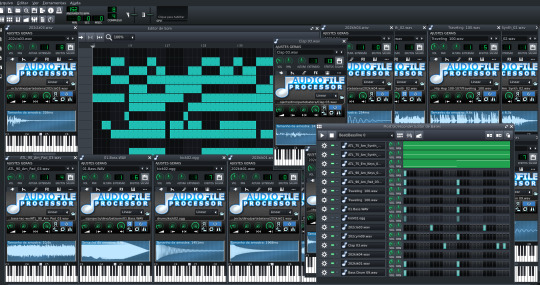
Music By Dinonisius Rex .·. d;)’(0 .·. -@-
#linuxuser#arch linux#lmms music#lmms#linux#linux mint#tux#trance#unix#electric#electronic music#electronic#freesoftware#drumbeat#my music#music#dancemusic#gnu
34 notes
·
View notes
Text
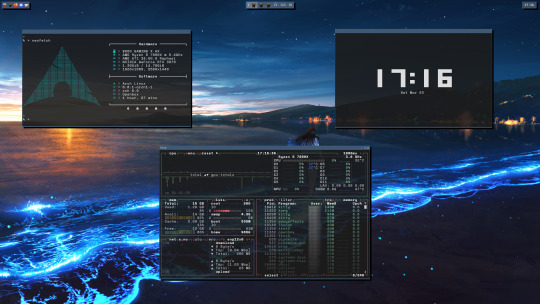

I recently reinstalled Arch on my PC and decided to give Openbox a shot.
I'm really happy with how it turned out, it's exactly what I wanted: the menus, the windows, the shadows, the way everything fits together is just so nice.
I wanted to give a certain kind of retro aesthetic to it and I think I did a pretty good job.
The theme I used is called 1977 Openbox, I edited it in order to make the window titlebar a little smaller and give it a different color. The shadows were made using picom and setting shadow-radius to 0, with the offset set to 7 on both the X and Y axis. The panels at the top of the screen are 3 different Tint2 panels which start at the same time when logging in. The terminal is Kitty and the font is called SpaceMono Nerd Font. There are also a few scripts I wrote in order to use special buttons and shortcuts on my keyboard to manage volume, players and screenshots using wpctl, playerctl and scrot.
I am so proud of this, I think I'll enjoy using it.
7 notes
·
View notes
Text
I use Arch, BTW
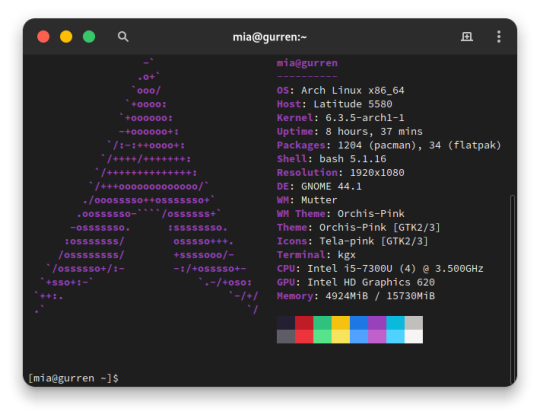
I made the switch from Ubuntu 23.04 to Arch Linux. I embraced the meme. After over a decade since my last failed attempt at daily driving Arch, I'm gonna put this as bluntly as I can possibly make it:
Arch is a solid Linux distribution, but some assembly is required.
But why?
Hear me out here Debian and Fedora family enjoyers. I have long had the Debian family as my go-to distros and also swallowed the RHEL pill and switched my server over to Rocky Linux from Ubuntu LTS. on another machine. More on that in a later post when I'm more acclimated with that. But for my personal primary laptop, a Dell Latitude 5580, after being continually frustrated with Canonical's decision to move commonly used applications, particularly the web browsers, exclusively to Snap packages and the additional overhead and just weird issues that came with those being containerized instead of just running on the bare metal was ultimately my reason for switching. Now I understand the reason for this move from deb repo to Snap, but the way Snap implements these kinds of things just leaves a sour taste in my mouth, especially compared to its alternative from the Fedora family, Flatpak. So for what I needed and wanted, something up to date and with good support and documentation that I didn't have to deal with 1 particular vendors bullshit, I really only had 2 options: Arch and Gentoo (Fedora is currently dealing with some H264 licensing issues and quite honestly I didn't want to bother with that for 2 machines).
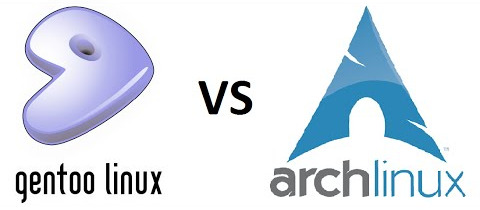
Arch and Gentoo are very much the same but different. And ultimately Arch won over the 4chan /g/ shitpost that has become Gentoo Linux. So why Arch? Quite honestly, time. Arch has massive repositories of both Arch team maintained and community software, the majority of what I need already packaged in binary form. Gentoo is much the same way, minus the precompiled binary aspect as the Portage package manager downloads source code packages and compiles things on the fly specifically for your hardware. While yes this can make things perform better than precompiled binaries, the reality is the difference is negligible at best and placebo at worst depending on your compiler settings. I can take a weekend to install everything and do the fine tuning but if half or more of that time is just waiting for packages to compile, no thanks. That plus the massive resource that is the Arch User Repository (AUR), Arch was a no-brainer, and Vanilla arch was probably the best way to go. It's a Lego set vs 3D printer files and a list of hardware to order from McMaster-Carr to screw it together, metaphorically speaking.
So what's the Arch experience like then?
As I said in the intro, some assembly is required. To start, the installer image you typically download is incredibly barebones. All you get is a simple bash shell as the root user in the live USB/CD environment. From there we need to do 2 things, 1) get the thing online, the nmcli command came in help here as this is on a laptop and I primarily use it wirelessly, and 2) run the archinstall script. At the time I downloaded my Arch installer, archinstall was broken on the base image but you can update it with a quick pacman -S archinstall once you have it online. Arch install does pretty much all the heavy lifting for you, all the primary options you can choose: Desktop environment/window manager, boot loader, audio system, language options, the whole works. I chose Gnome, GRUB bootloader, Pipewire audio system, and EN-US for just about everything. Even then, it's a minimal installation once you do have.
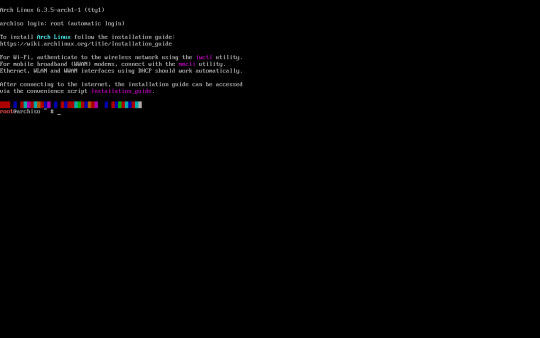
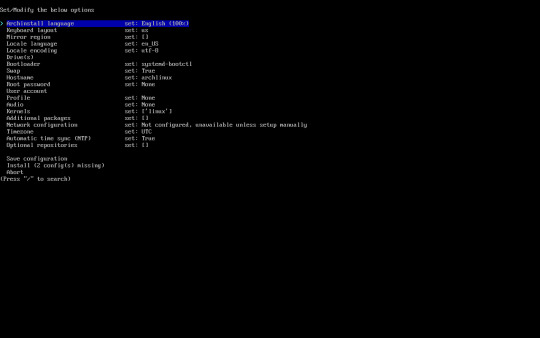
Post-install experience is straightforward, albeit just repetitive. Right off the archinstall script what you get is relatively barebones, a lot more barebones than I was used to with Ubuntu and Debian Linux. I seemingly constantly was missing one thing for another, checking the wiki, checking the AUR, asking friends who had been using arch for even longer than I ever have how to address dumb issues. Going back to the Lego set analogy, archinstall is just the first bag of a larger set. It is the foundation for which you can make it your own further. Everything after that point is the second and onward parts bags, all of the additional media codecs, supporting applications, visual tweaks like a boot animation instead of text mode verbose boot, and things that most distributions such as Ubuntu or Fedora have off the rip, you have to add on yourself. This isn't entirely a bad thing though, as at the end if you're left with what you need and at most very little of what you don't. Keep going through the motions, one application at a time, pulling from the standard pacman repos, AUR, and Flatpak, and eventually you'll have a full fledged desktop with all your usual odds and ends.
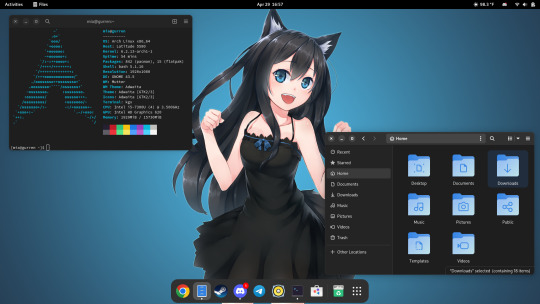
And at the end of all of that, what you're left with is any other Linux distro. I admit previously I wrote Arch off as super unstable and only for the diehard masochists after my last attempt at running Arch when I was a teenager went sideways, but daily driving it on my personal Dell Latitude for the last few months has legitimately been far better than any recent experiences I've had with Ubuntu now. I get it. I get why people use this, why people daily drive this on their work or gaming machines, why people swear off other distros in favor of Arch as their go to Linux distribution. It is only what you want it to be. That said, I will not be switching to Arch any time soon on mission critical systems or devices that will have a high run time with very specific purposes in mind, things like servers or my Raspberry Pi's will get some flavor of RHEL or Debian stable still, and since Arch is one of the most bleeding edge distros, I know my chance of breakage is non zero. But so far the seas have been smooth sailing, and I hope to daily this for many more months to come.
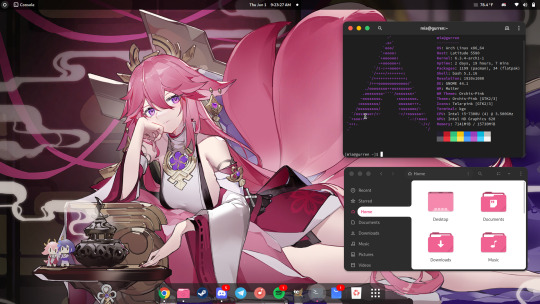
37 notes
·
View notes
Text
9 notes
·
View notes
Text

... oh lord i was sent to what year again
2 notes
·
View notes
Text
Maskoch theme preview #1...





Proudly made on KDE Plasma 5.27 on my Artix PC, with a few Inkscape renders and a GIMP practice edit.
2 notes
·
View notes
Text
[ Stream Session ] [ Twitch ] [ Programming ] [ C ]
I'm thinking about making a unix shell and streaming it tonight. (8/12/2024)
6pm ish MDT.
I have no idea what I'm doing. I've played with REPL, by making a lisp interpreter. Might be a mess.
Also I'm working on branding myself. I probably should have thought about that before making my Twitch account.
1 note
·
View note
Text
I voted windows at first, but then I realized that if it’s just an OS question, mac actually makes more sense for me. Both because it’s Unix (as others have said), but also because it doesn’t necessarily have to be on Mac hardware. My main reasons for saying windows was because Macs are expensive and irreparable (and also I’ve always used windows for personal use), but the OS seems fine from what I can tell. Also tiling window managers seem to be an actual thing there, so it would work.
ok- hypothetical here:
in a world where linux distro's, bsd, or any other FOSS system suddenly blink from existance (so basically a nightmare) would you rather use Mac, Windows, Chrome, etc
NO Haiku either since I know that would dominate the polls.
I want to see what would happen if you were forced to sell your data to a company. Who would you trust more, and why? what do you prioritize when it comes down to limited options?
being toxic about it is indeed encouraged
94 notes
·
View notes
Text
VIM is the best text editor, and Google's recent statement confirms this.

61 notes
·
View notes
Text
Linux and BSD
More specifically: Linux and Choice, and What an Operating System Should Be
Choice brings the opportunity for error. A perhaps profound statement on life, but we're talking about operating systems here. When the user is given the opportunity to make choices, they are given the opportunity to make mistakes. What choices the user wants to make, and what choices they do make, will define their experience with an operating system.
This is the crux of many operating system debates in my opinion. What is an operating system to you? Much of the online Linux space is populated by those who see their operating system as a hobby, something to be played with. I think this is why we see distros such as Arch, NixOS, and Gentoo so often. They are the perfect vessels for this sort of use. But you also will encounter those who simply want an operating system that works. They don't want to constantly dig through their config files, fix broken packages, or add pretty animations to their WM, they just want to use their operating system as a means to an end. This is where you'll find Debian, Ubuntu, Fedora, and as the title suggests, BSD.
BSD users in my experience value consistency above all else. When they encounter an install of a BSD system, they expect it to work exactly like any other install would. They expect the same commands, same software, and same experience. This is Unix after all, not Linux. When BSD users talk about Linux, this is the most common pain point I see. X11 or Wayland? PulseAudio or PipeWire? SystemD or alternatives? Each Linux install, even of the same distro, has the potential to be wildly different. And this can lead to frustration.
I think there's a tendency for us as Linux users to assume this is how an operating system should be. Millions of choices allowing for personalizing your experience. After all we associate the opposite with Windows. But I think monolithic operating system designs should not be dragged down by this association. Customization is just one reason to not like Windows. A well designed monolithic system, as we see with the BSD's, can provide a seamless experience out of the box that is difficult to recreate with component based designs.
This is not to say that either is bad. In fact, both I'd say both are good. I am a Linux user primarily. I know Linux quite well and at this point in my life I'm not willing to put in the effort to learn anything else. This also means that I know what I like to customize, how I like my Linux to work. But I see the appeal of BSD's and their consistent design.
To end this post I would like to ask a hypothetical. If one of the BSD's were currently in the position of Linux, an upcoming competitor to Windows, would we see easier adoption from Windows users who are used to monolithic designs?
#another tech ramble woooooo#linux#linuxposting#I would tag bsd but Im pretty sure thats owned by the bungo stray dogs fans#operating system
8 notes
·
View notes
Text
Music By Dinonisius Rex .·. d;)’(0 .·. -@- live long Tux …. LMMS
#linux mint#my music#electric#electronic music#electronic#drumbeat#lmms music#linux#ubuntu#tux#linuxuser#arch linux#electropop#music#trance#unix#dj#housemusic#Bandcamp
4 notes
·
View notes
Text
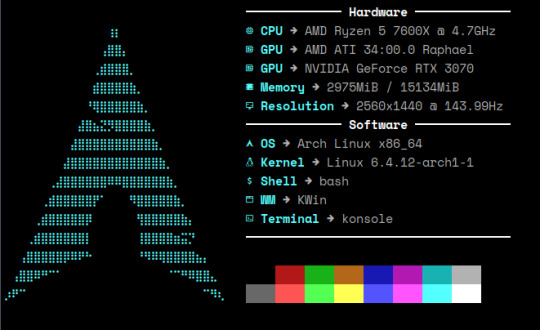
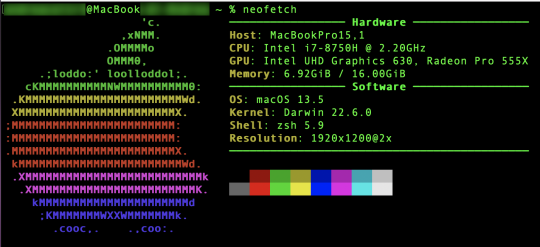
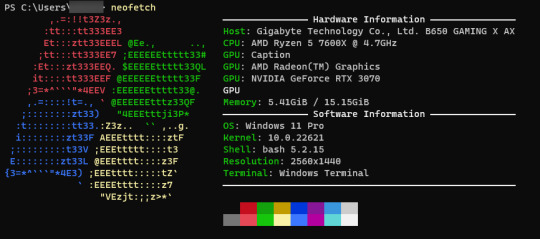
Now all the operating systems I use have the same neofetch look.
13 notes
·
View notes